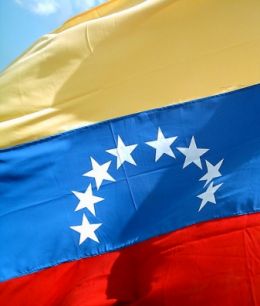Where is Venezuelan President Nicolás Maduro taking his country? Clearly, it is radicalizing further and faster than under his predecessor, Hugo Chávez.
Exactly one month before the December 8 municipal elections, Maduro announced the “occupation” of the Daka chain of electronics stores and security forces proceeded to arrest several executives. A few days later he asked the “Bolivarian Militia” to take to the streets to hold back the “fascist right wing that wants to wage economic war on Venezuela.”
Next up, a promise to go after food, textile, footwear, toy, vehicle, and hardware stores–all of which he accuses of price gouging. He will soon have new tools to do so after the National Assembly grants him year-long emergency decree powers that he says are need to stamp out corruption.
Nationalizations and occupations are nothing new to Venezuela. Chávez often resorted to blaming the bourgeois when he needed to shore up public support. During his 14 years in power, he expropriated or seized assets from more than 1,000 companies. But why is Mr. Maduro going so much further than his predecessor?
The real culprit is not capitalism. Instead, the Venezuelan president is increasingly worried about sustaining his dwindling popularity in the face of 54 percent inflation and increasing popular discontent with an economy in freefall.
Even more pressing, polls show that the opposition may be headed for victory in the popular vote on December 8. This is quite worrisome for Mr. Maduro whose tenuous hold on power may be challenged by members of his own Partido Socialista Unido de Venezuela (PSUV) if this first referendum on his stint in office shows falling support for the PSUV.
Mr. Maduro’s ratcheting up of tensions is an inflection point. At a time when the economy needs a national consensus around key reforms, Maduro has instead opted for polarization and tension. Decision makers should be prepared for a variety of scenarios. Faced with a losing election, the inescapable conclusion of his escalation in polarization and fear is that he has chosen one of two paths.
One possibility is that he is seeking to suppress the opposition’s votes on December 8 by injecting heightened levels of fear in the streets. It is well known that Venezuelans have doubts about how secret their voting booths really are. This heightened tension will worry Venezuelans that a vote for the opposition might end up meaning a lost job, a lost university slot, or bad housing.
The other possibility is far worse. Maduro may have come to the conclusion that there is no way for the PSUV to win the elections. As a result, it is better not to have them at all. Cancelling the elections requires violence. His Bolivarian Militias may well have orders to create violence, looting, and fighting. This would translate into the perfect excuse to “postpone” the vote to calmer days.
As pointed out in the newly released Spotlight Venezuela brief from the Atlantic Council’s Adrienne Arsht Latin America Center, the international community must carefully decide how it will respond to domestic events.
Beyond the upcoming elections, instability is likely to continue in Venezuela unless economic adjustments are made to bring down inflation and undo the exchange rate controls that have led to the bolivar being priced at nearly ten times the official rate on the black market.
We have been down this road in Venezuela numerous times in the last nearly 15 years. But Chávez knew where to draw the line to avoid a complete national breakdown. Can the same be said of Maduro? It’s still too early to tell.
Jason Marczak is deputy director and Peter Schechter is director of the Adrienne Arsht Latin America Center
